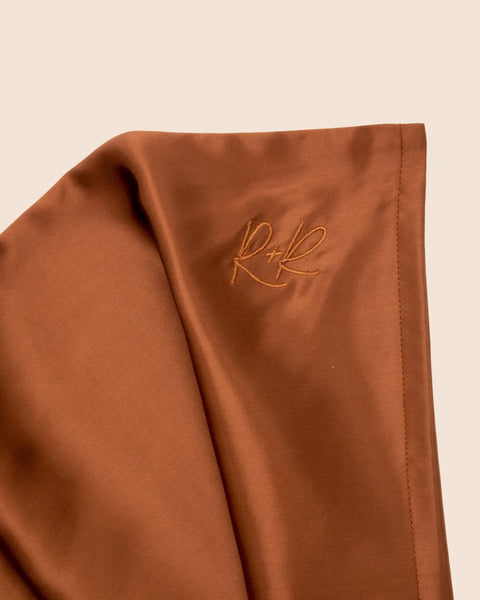What is OEKO-TEX®, and why does it matter?
In the height of the ‘fast fashion and textile’ era, it’s easy to get lured into mass produced, cheap versions of our most coveted products and brands – but what is the true cost?
We’ve all been guilty of overlooking a slightly crooked seam, or a less than luxe feeling fabric if the price was right and it looked the part. However, a little-known fact about these low-priced textile items is that the materials used are largely unregulated and potentially even toxic. In order to offer the latest ‘it-products’ fast and cheap, sacrifices must be made, and corners must be cut. Unfortunately, this is often to the detriment of our health and the environmental well-being. Luckily, consumers are becoming savvier, which lead to the introduction of an internationally recognised standard, the OEKO-TEX® standard 100.
The OEKO-TEX® standard was developed in 1992 in Zurich by the prestigious International OEKO-TEX® Association. The ‘STANDARD 100’ label certifies that every component of that particular item, i.e. every thread, button, and other accessory has been tested for harmful substances and confirms the article therefore is harmless for human health.
Some of the toxic substances that all OEKO-TEX® Standard 100-certified products are tested for include but are not limited to formaldehyde, nickel and azo dyes. There are also many substances that are not legally banned but are suspected to be harmful to humans and detrimental to the environment. These can include allergy inducing dyes and synthetic fabric softeners - also known as phthalates. Most countries have their own standards for textiles, however in many cases, OEKO-TEX’s testing criteria and limit values are much stricter than national or international standards.
As part of this certification, there are subclasses:
- Class 1 – Is for baby and toddler products and is the most highly regulated and strictly tested group.
- Class 2 – Is for products that come into direct contact with skin. Some things that fall into this category would be clothes such as t-shirts, socks, underwear and home textiles such as bath towels and bed linen.
Companies that want their products certified submit them voluntarily. They are then stringently tested by 18 independent laboratories across the globe. In order to maintain the certification, they must reapply every 12 months to ensure they are still meeting the strict criteria.
So, why is all of this important? Because when you wear a piece of clothing or sleep in bed linen, any toxic substances they were treated with can be absorbed into your body. Since we use these products daily – especially bed linens – it is crucial to invest in bedding that poses no threat to yours and your family's health. It also creates trust and transparency in textiles, increases product safety, and improves sustainable production.
You can rest assured that all of our silk products at The R+R Collective have been thoroughly tested and maintain the strict OEKO-TEX® 100 standard. Not only are you getting the highest quality silk products, you’re getting the safest too.
